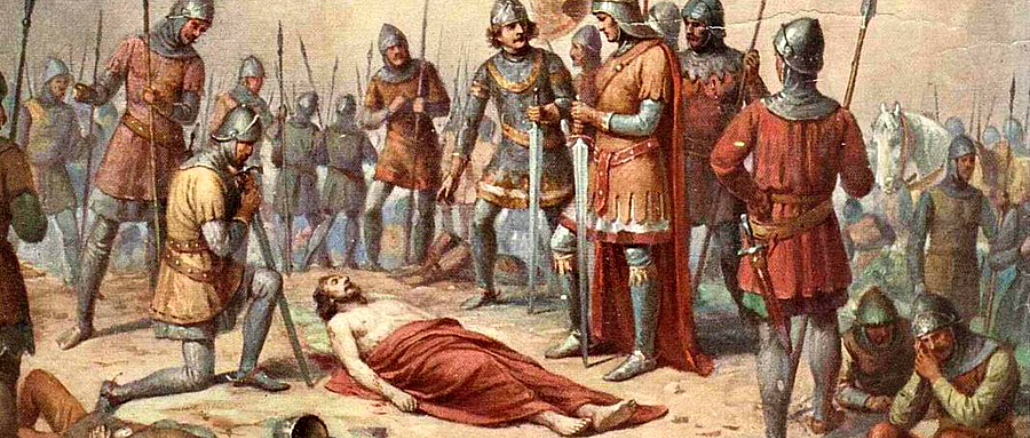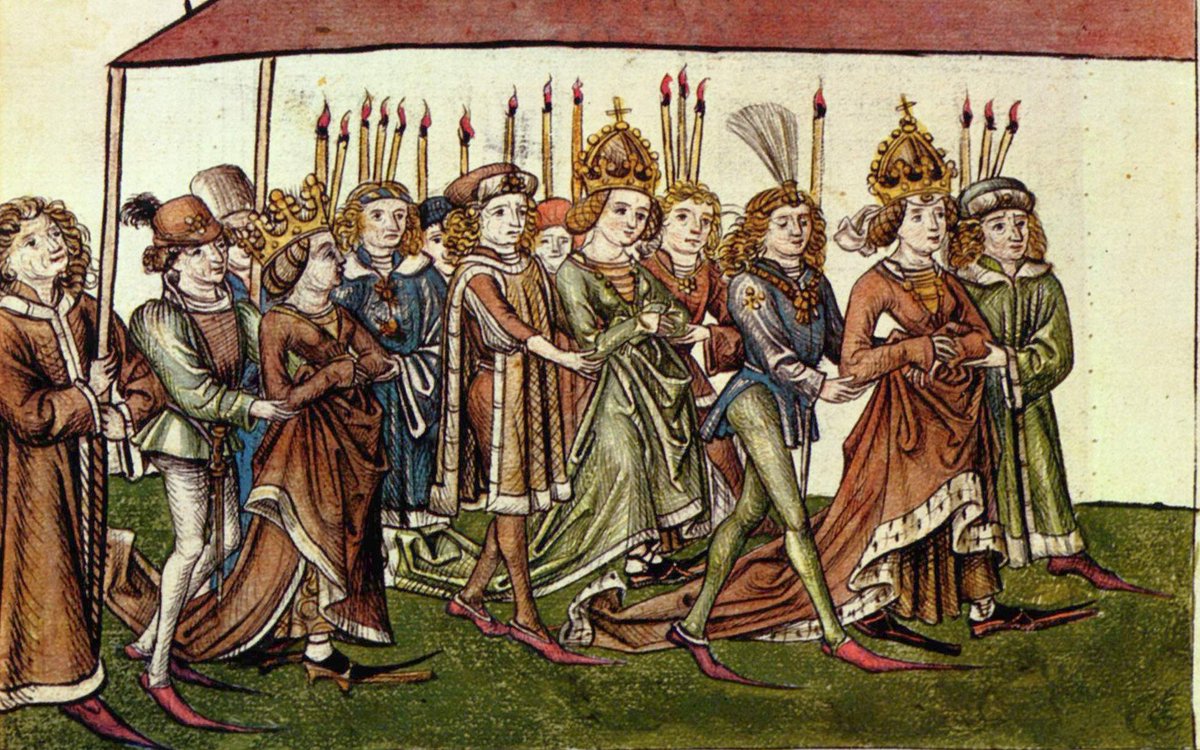
There is a lot of anti-Habsburg hypocrisy in the sense that they're accused of being "expansionist" while in reality their historic Central European rivals also wanted to expand. This comment inspired me to finally do a thread on this I wanted to for a long time.
https://twitter.com/RCCoulombe/status/1455865576480464901
If you look at history, the Habsburg possessions in Central Europe were united truly organically and after a long process where local ancient traditions were largely preserved as were the cultures of common people living under this vast realm. 

It should also be noted that both Bohemia and Hungary also came close to unifying lands in Central Europe at one point. Historically, there was a push to unite Central Europe from different sides and Habsburgs were simply the ones who finally achieved it. 

Ottokar II Přemyslid of Bohemia who ruled from 1253-1278 successfully expanded over Austria all the way to Adriatic and defeated Hungarians. If certain events went slightly differently, Bohemia could have united the future Central European Habsburg territories. 



However Ottokar II was defeated and died at the decisive battle of Marchfeld in 1278 by Rudolf I of Habsburg who was also helped by Hungarians. After Ottokar's death his Austrian territories passed on to the Habsburgs who established a foothold in Central Europe. 

In the next centuries, the Habsburgs were rivaled by local powers, most fiercely by the mighty Hungarian nobility. Most famous was the Hungarian King Matthias Corvinus who led an aggressive expansionist policy, attacking both Bohemia and Austria and conquering Vienna in 1485. 



Just like the Bohemian Ottokar before him, Matthias Corvinus had big ambitions and was a very capable leader and king. Both are now rightfully held in high regard, but it's hypocritical if same people who praise them complain about "expansionist Habsburgs" at the same time. 



After Matthias Corvinus died in 1490 Hungary was suddenly in shambles of succession war. King of Bohemia Vladislaus II was elected King of Hungary and Croatia in 1490 and took over, succeeded in 1516 by Louis II who suffered the devastating defeat to Ottomans and Mohács in 1526. 

After Louis' death on battlefield, Ferdinand I of Habsburg was elected to thrones of Hungary, Croatia and Bohemia. In the following centuries the Habsburgs reconquered the entire Kingdom of Hungary from the Ottomans, crushed the Bohemian rebels and unified Central Europe. 

This is why with Habsburgs, their historical legacy is simply the most deserving to lead Central Europe. They had the Imperial prestige, they not just defended from the Ottomans but reconquered entire Hungary back and were able to hold everything together deep into modern age. 



We can also briefly mention the reign of Emperor Sigismund of Luxembourg. He was King of Hungary from 1387 to 1437 and also became formally the King of Bohemia in 1419 and fought with the Hussite to expand his might to Bohemia and also force back Catholicism there. 



As you can see, all three local powers (Austria, Hungary and Bohemia) had historically contested all of Central Europe and they all pushed towards expansionism whenever they had a chance. It was not just the "mean Habsburgs" like victimist nationalist romanticism tried to depict. 

So there is a lot of dishonesty where 19th century nationalists and their modern ideological descendants accused Habsburgs of being "expansionist", putting "their own personal interests first" when historic Kingdoms they like to praise did the same, or tried to do the same. 

The truth is, Central Europe was kind of supposed to be united and it was going to happen one way or another. Why is there such strong bond among Central European nations? Let me explain. First, this territory was historically a borderland of the Frankish Empire... 

It was basically the "wild East" of the Empire and of Latin Christianity, where also many different races of Europeans lived and collided: Germanics, Slavs, as well as the Latin and Wallachian element to the coast and in the mountains, and later the Magyars. 

Due to this chaotic situation, a lot of different local powerful men and their states established themselves. But because these states were not strong enough on their own, the events gradually pushed towards unification and creation of stronger kingdoms like Bohemia and Hungary. 

While the modern nationalist tries to present some sort of antagonism between the different linguistic groups in Central Europe, historically it didn't matter. They were all united by the same warrior aristocracy which intermarried, allegiance to Christendom and Latin language. 

The real conflict in Central Europe was not between the "ethnic" or "national" groups but between different factions of nobility which didn't care about intra-European ethnic differences since they married people from all over Europe and would be "mixed" by nationalist standards. 

What 19th century nationalists did was distort history in a way to try to present these ancient wars in terms of some made-up ethnic antagonism, and claiming either victim status or superiority in relation to other ethnic groups, or towards Habsburgs as the "evil imperialists". 

What this ultimately led to is that since 20th century Central Europe is back where it was in the dark ages, a series of insignificant borderlands where from time to time some local ruler grows in power a little bit, but not to the point to establish a truly powerful state. 

• • •
Missing some Tweet in this thread? You can try to
force a refresh























